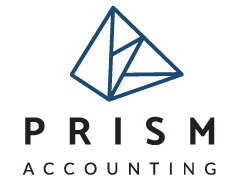Taking advantage of negative gearing remains an attractive tax minimisation strategy. However, many property investors don’t realise they may be able to get more tax benefits. We are sharing some simple tax tips for rental property owners.
1. Keep good records
You should keep records for every transaction and event affecting your investment property for the entire period of ownership of your property and for at least five years since the date of lodgement of your tax return for the year in which you dispose of it.
The records you need to keep, depending on your circumstances, may include:
Acquiring the property:
- Contract of purchase or transfer documents
- Settlement statement
- Stamp duty paid on acquisition
- Invoices for legal fees and other expenses paid on purchase
- Property loan details, including any loan set up costs
Property ownership:
- Complete bank statements for the property loans
- Rates, strata levies and Land Tax paid on the property
- Property insurance costs
- Records of any other costs or receipts (e.g. costs of legal disputes, insurance payouts)
Keep records of these expenses even is your property is not available for rent as it may affect the property cost base for CGT purposes.
Renovating and repairing your property:
- Invoices for remedial repairs and maintenance works
- Invoices for major renovation, construction and improvements costs
- Invoices for landscaping and earthwork
- Invoices for garden maintenance
- Invoices for any items purchased for your property
Make sure the invoices contain detailed description of the work performed. Ask your supplier to itemise the invoice where possible.
Renting out your property:
- The date the property first started earning assessable income
- Starting and ending dates of the periods the property was rented out, used as your main residence or used for any other purpose
- Depreciation and capital works deductions claimed against rental income
Selling your property:
- Sale contract and settlement statement
- Invoices for legal fees, marketing costs and agent sale commission
- Invoices for renovation, styling and other expenses paid to sell the property.
2. Get Depreciation Report from a Quantity Surveyor
A Quantity Surveyor is a specialist who can estimate value of construction works and depreciable items to produce report outlining the amounts of capital allowances you can claim in each year for those items if you rent your property.
You can generally benefit from claiming deduction on capital works (building) if the residential property was built after 15 September 1987. The costs of building are claimed over 40 years from the date the construction was complete at 2.5% per year (for example, if the initial costs of building are $350,000, you can claim 8750 per year).
If you acquire a newly built property, you are also eligible to claim deduction on depreciable items, also known as plant and equipment. These are items that have limited effective life and can be easily removed from the property, such as appliances, hot water systems, security systems, air conditioning assets, etc. The amount of claim depends on effective life of these assets.
By claiming capital allowances, you can get the benefits of significant tax deductions without making any cash outgoing (since the costs were already included in the purchase price of the property).
Before using a Quantity Surveyor, you should check if they are accredited by Australian Institute of Quantity Surveyors and are registered as Tax Agent with the Tax Practitioners Board (TPB).
3. Keep your investment property loans “clean”
The amount of interest you can deduct against your rental income (or capitalise as a part of the cost base) is limited to the extent the money borrowed were used for the purpose of acquiring, renovating and maintaining the property. If part of the loan was used for other purposes, the portion of interest relating to that part may not be deductible.
While mixed-purpose loans may be a commercial reality, they may restrict your ability to manage the loan balances relating to each of the purposes. Generally speaking, repayments you make on such loans will be allocated proportionally. You cannot choose which particular balance you want to repay first.
Making frequent drawdowns on property loans for unrelated purposes may add up to the tax compliance costs as your accountant will have to spend time to calculate the apportionment on monthly basis.
4. Obtain Market Valuation of your property if necessary
If you start renting out the property or otherwise start using it to produce assessable income for the first time and that property would qualify for a full Main Residence Exemption if sold just prior to that point, you are deemed to acquire it on the day it first started to produce assessable income at Market Value on that day (if the first use occurred after 7.30 pm 20 August 1996). When this happens, you may need to obtain Market Valuation to establish the cost base of your property for CGT purposes.
Other situations where you may need to obtain market valuation include:
- You acquired your property for no consideration (e.g. as a gift)
- You inherited your property and the property was acquired by the deceased before 20 September 1985.
- The property was acquired from or sold to a related party (e.g. family or friends).
- You change your intention to hold the property as an investment asset for generating rental income and decide to undertake development and/or subdivision for sale.
- You were a non-resident or a temporary resident owning an investment property in Australia for a period of time before 8 May 2012.
Your Accountant will be able to advise you if obtaining market valuation is required or appropriate in your circumstances. For Capital Gain Tax purposes, you should use a professional qualified valuer. Property sale price indications, real estate agent appraisals or other informal valuations are not accepted by the ATO as proper evidence. Market valuations can be done retrospectively.
Disclaimer: All the information provided on this website is of general nature and does not constitute tax, legal or financial advice. It does not take into account your personal circumstances and is not intended to replace consultation with a qualified professional.



